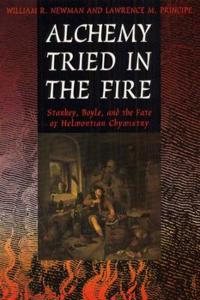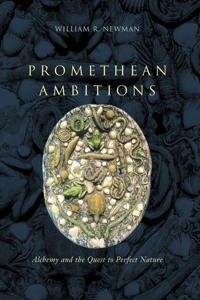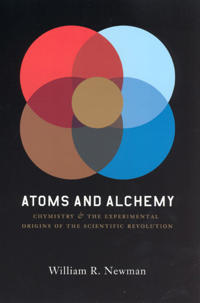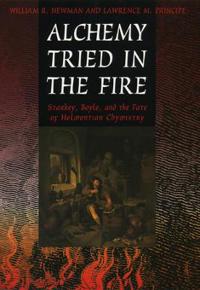Alchemy Tried in the Fire (Inbunden)
avWilliam R. Newman, Lawrence M. Principe, William R. Newman
ISBN: 9780226577111 - UTGIVEN: 2002-12What actually took place in the private laboratory of a mid-17th-century alchemist? How did he direct his quest for the secrets of Nature? What instruments and theoretical principles did he employ? Using as their guide the previously misunderstood interactions between Robert Boyle, widely known as "[...]
Promethean Ambitions (Häftad)
avWilliam R. Newman
ISBN: 9780226575247 - UTGIVEN: 200512"In Promethean Ambitions", William R. Newman uses alchemy as a means to discuss the thinning boundary between the natural and the artificial. Focusing primarily on the period between 1200 and 1700, Newman examines the labors of pioneering alchemists and the impassioned - and often negative - respons[...]
Atoms And Alchemy (Pocket)
avWilliam R. Newman
ISBN: 9780226576978 - UTGIVEN: 200605Since the Enlightenment, alchemy has been viewed as a sort of antiscience, disparaged by many historians as a form of lunacy that impeded the development of rational chemistry. But, in "Atoms and Alchemy", William R. Newman - a historian widely credited for reviving recent interest in alchemy - expo[...]
Alchemy Tried in the Fire (Häftad)
avWilliam R. Newman, Lawrence M. Principe
ISBN: 9780226577029 - UTGIVEN: 200507Using the previously misunderstood interactions between Robert Boyle, widely known as "the father of chemistry," and George Starkey, an alchemist and the most prominent American scientific writer before Benjamin Franklin, as their guide, William R. Newman and Lawrence M. Principle reveal the hithert[...]






